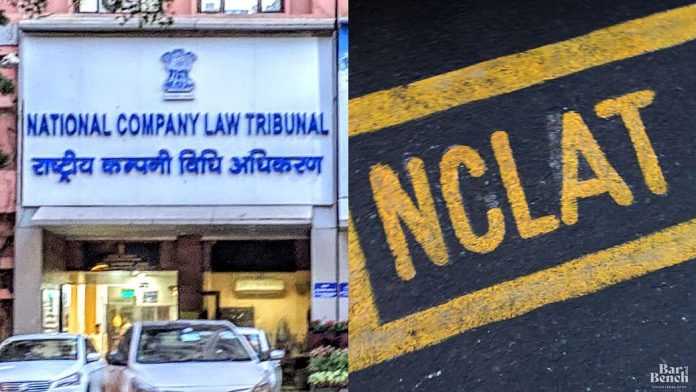This article is written by Sunkara Vishnu Ameya, pursuing a Certificate Course in National Company Law Tribunal (NCLT) Litigation from LawSikho.
Table of Contents
Introduction
The Insolvency Bankruptcy Code, 2016 (IBC) is considered to be a major revamp in India’s debt recovery laws and corporate laws. Unlike the previous laws like the Recovery of Debts due to Banks and Financial Institutions Act, 1993 (RDBA) and The Securitisation and Reconstruction of Financial Assets and Enforcement of Securities Interest Act, 2002 (SARFAESI), the IBC is not a mere debt recovery law. The primary focus of the IBC is the revival of the corporate debtor. This is sought to be achieved by providing a timely resolution by balancing the interests of both the debtor and the creditor by running the corporate debtor as a going concern and by maximising the value of the assets of the corporate debtor. Under the IBC and the Companies Act, 2013 the NCLT is limited to a summary jurisdiction, i.e, it is confined to ascertaining default, ensuring the entire CIRP and the liquidation complies with the IBC. However, ever since the inception of IBC, there have been various questions of law regarding the scope of NCLT in adjudicating disputes which are ancillary to the CIRP and the jurisdiction of the NCLT in matters relating to questions of law. The present article would analyse one such instance which arose in the matter of Gujarat Urja Vikas Nigam vs. Amit Kumar.
Background of the case
The intersection of IBC with other laws had previously laid down many questions of law regarding the primacy of IBC vis-à-vis the other laws. Section 230 of IBC provides the primacy of IBC over previous law to the extent of inconsistency between IBC and other existing laws.
Section 60(5) is another such provision that provides for the jurisdiction of NCLT regarding the extent of the jurisdiction in matters arising out of or in relation to insolvency or liquidation under the Code. This has also raised concerns regarding the jurisdiction of NCLT over such matters as the previous law may provide for a completely different forum for redressal of disputes. The case of Gujarat Urja Vikas Nigam vs. Amit Kumar acts as a further clarification of the scope of the NCLT and the scope of IBC when in intersection with other laws.
Having a look at the facts
- On 30.04.2010, the Gujarat Urja Vikas Nigam Ltd. (GUVNL) and Astonfield Solar Pvt Ltd. (Corporate Debtor) entered into a Power Purchase Agreement (PPA) wherein, the corporate debtor shall supply power to GUVNL.
- However, there were various disruptions in the production of power by the corporate debtor. Most notably, in the year 2015 due to heavy floods, the corporate debtor was operating at 70% of full capacity and the heavy floods in the year 2017 wherein the corporate debtor was operating at 15% of full capacity leading to defaults and non-fulfillment of contractual obligations.
- On 04.05.2018, the corporate debtor was declared a Non-Performing Asset (NPA) by the lenders. Subsequently, the corporate debtor filed for initiation of Corporate Insolvency Resolution Process (CIRP) which was admitted by the NCLT on 20.11.2018.
- On 01.05.2019, GUVNL in pursuance of Clause 9.2 of the PPA issued a default notice that under Article 9.2.1(e) of the PPA, the CD was undergoing CIRP under the IBC which amounts to an event of default. GUVNL called upon the CD to remedy this default within 30 days from the date of receipt of the said notice. Further, the default notice specifically stated that the PPA will be terminated if the corporate debtor does not cure the defaults mentioned in the default notice.
- The resolution professional filed an application to the NCLT Ahmedabad bench for restraining GUVNL from terminating the PPA.
The decision of the NCLT
The resolution professional filed an application under Section 60(5) of IBC to restrain GVNL from terminating the PPA Agreement on the ground that it would prejudicially affect the CIRP. The NCLT ruled that by terminating the PPA, the corporate debtor can no longer function as a going concern. This aspect is against the basic objective of IBC was not allowed by the NCLT. However, the NCLT did rule that the PPA Agreement may be terminated once the corporate debtor went into liquidation. Further, the NCLT also observed that the NCLT has the jurisdiction to deal with this matter as this pertains to such matters “arising out of or in relation to the insolvency resolution”, thus bringing the subject matter within the four-square walls of the jurisdiction of the NCLT. In this regard, the NCLT cited the judgment of Swiss Ribbons vs. Union of India, wherein it was observed by the Supreme Court that the IBC envisages Liquidation as a last resort, and even during liquidation, the corporate debtor may be sold as a going concern.
Decision of the NCLAT
The NCLAT affirmed the judgment of NCLT. The NCLAT further observed that to keep the ‘Corporate Debtor’ a going concern, which is generating electricity and supplying only to GUVL. GUVL being the purchaser of the electricity cannot terminate the Power Purchase Agreement solely on the ground that ‘Corporate Insolvency Resolution Process’ has been initiated against the corporate debtor which is generating electricity and supplying it and there is no default in supplying electricity and during the ‘Corporate Insolvency Resolution Process.’
However, the NCLAT did not give any specific finding on whether it or the NCLT can exercise its jurisdiction under Section 60(5)(c) over a dispute arising out of the termination of the PPA.
Issues before the Hon’ble Supreme Court of India
- Whether the NCLT/NCLAT can exercise jurisdiction under the IBC over disputes arising from contracts such as the PPA; and
- Whether the appellant‘s right to terminate the PPA in terms of Article 9.2.1(e) read with 9.3.1 is regulated by the IBC.
The decision of the Hon’ble Supreme Court of India
Jurisdiction of the NCLT/NCLAT over contractual disputes
The Supreme Court observed that Section 60(5) of IBC provides the NCLT jurisdiction to “deal with any question of priorities or any question of law or facts arising out of or in relation to the insolvency resolution or liquidation proceedings of the corporate debtor or corporate person under the Code .”
The IBC contemplated the establishment of a single forum in order to deal with the matters of insolvency, which were distributed earlier across multiple fora. Further, this was established in the case of Arcelor Mittal vs. Satish Kumar Gupta that the NCLT is the sole authority when it comes to entertaining or disposing applications against the Corporate Debtor in the IBC.
Further, in the instant case, the Supreme Court noted that the ‘Residuary Jurisdiction’ of the NCLT is to be read with the entire IBC and a combined reading of both would show that the NCLT is conferred with the power under IBC to adjudicate questions of law or fact arising from or in relation to the insolvency resolution proceedings.
By clarifying the applicability of these provisions, the Supreme Court ruled that since the contractual disputes pertain to disputes arising out of or in relation to the insolvency resolution or liquidation proceedings, the NCLT is empowered to adjudicate such disputes. However, the existing provision that the NCLT is bound by the limitations stipulated by IBC still remained intact.
Residuary jurisdiction of the NCLT under Section 60(5)
The Supreme Court ruled that the NCLT is conferred with a wide power to adjudicate questions of law or fact arising from or in relation to the insolvency resolution proceedings. However, the Supreme Court clarified that the Residuary Jurisdiction is always limited to such matters provided in the IBC and The Companies Act, 2013. The NCLT cannot assume any jurisdiction that is not provided by either of the statutes, i.e, The Companies Act, 2013, or the IBC.
The jurisdiction of NCLT and Gujarat State Electricity Regulatory Commission (GERC)
Section 86(1)(f) of The Electricity Act empowered the GERC to adjudicate disputes between the Generating Company and distributing Licensee. However, in the instant case, the Corporate Debtor was undergoing CIRP and such a dispute was in relation to the CIRP. The Supreme Court observed that the NCLT would have the jurisdiction to deal with the instant matter. Further, Section 238 of IBC stipulates that IBC overrides other laws to the extent of the inconsistency.
GUVNL’s right to terminate PPA
The Supreme Court observed that the sole purpose of the corporate debtor was to supply electricity to GUVNL under the PPA. If the PPA were to be terminated by PPA, under clauses of the PPA which empower GUVNL to do so in the instance of CIRP. However, the Supreme court found that such a right would lead to disastrous consequences as the corporate Debtor would no longer run as a going concern thereby defeating the entire objective of IBC.
Further with regard to the powers of the NCLT in restraining GUVNL from terminating the PPA, the Supreme Court upheld the action of the NCLT on the ground that PPA was essential for CIRP and to run the corporate debtor as a going concern. Also, the provisions of IBC prevail over the PPA and the NCLT was acting in furtherance of enforcing the provisions under the IBC.
Conclusion and analysis
The present judgment serves as a great guiding light for future disputes with reference to the intersection of IBC with other laws. The judgment clarifies that IBC would prevail over other laws to the extent of the inconsistency. Further, in matters pertaining to the CIRP of companies engaged in production/distribution of electricity and allied sectors, the primacy of IBC would be instrumental in the revival of companies if not the entire revival could be disrupted by terminating the PPA. The Supreme Court has rightly clarified that the NCLT and NCLAT ensure that they do not usurp the legitimate jurisdiction of other courts, tribunals, and fora when the dispute is one, which does not arise solely from or relating to the insolvency of the corporate debtor. All in all this judgment provides clarification regarding another important facet of IBC, thereby paving way for a better implementation of IBC ensuring the corporate debtor runs as a going concern and revives in a timely mechanism.
References
- Aditya K Singh & Anukriti Jain, India: Not All Disputes Are Amenable To The Jurisdiction Of Electricity Commission: PPAs Cannot Be Terminated During Moratorium, https://www.mondaq.com/india/insolvencybankruptcy/1049792/not-all-disputes-are-amenable-to-the-jurisdiction-of-electricity-commission-ppas-cannot-be-terminated-during-moratorium.
- Arunabh Rajan, Supreme Court on the jurisdiction of the NCLT to determine Agreements related to Insolvency, https://ibclaw.in/analysis-of-gujarat-urja-vikas-nigam-limited-versus-mr-amit-gupta-ors-by-mr-arunabh-rajan/.
Students of LawSikho courses regularly produce writing assignments and work on practical exercises as a part of their coursework and develop themselves in real-life practical skills.
https://t.me/joinchat/J_0YrBa4IBSHdpuTfQO_sA
Follow us on Instagram and subscribe to our YouTube channel for more amazing legal content.
 Serato DJ Crack 2025Serato DJ PRO Crack
Serato DJ Crack 2025Serato DJ PRO Crack










 Allow notifications
Allow notifications


